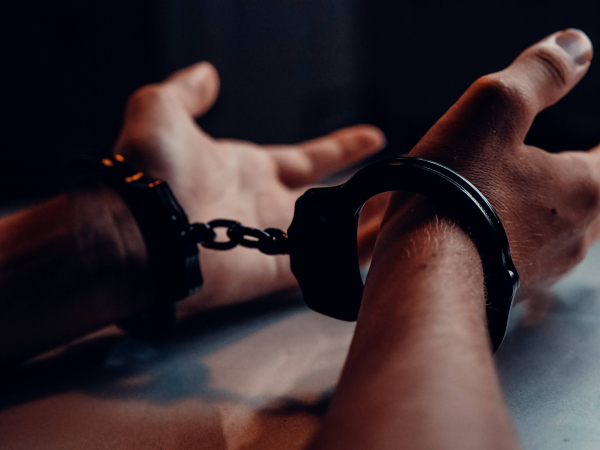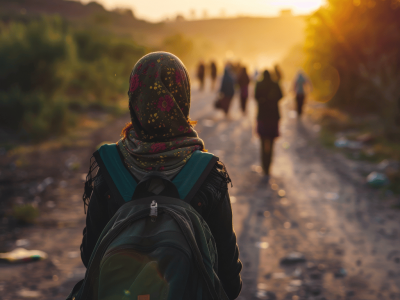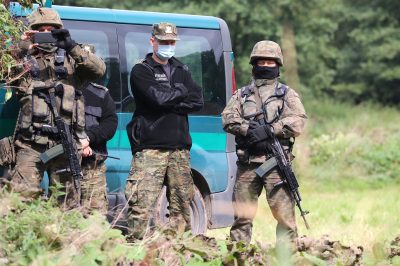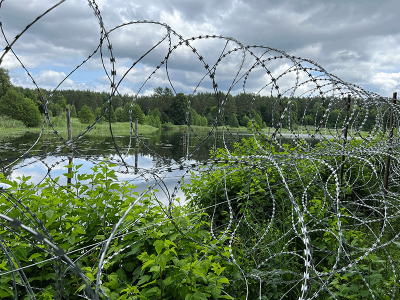
On 6 September 2023, the Warsaw Regional Court ordered the immediate release of a Russian citizen who had been in immigration detention since 8 August. The court released the man from detention and imposed non-custodial measures, requiring him to report to a Border Guard post twice a week and to live at a specified address.
Detention of migrants should be a last resort, says Warsaw Regional Court in recent ruling
On 6 September 2023, the Warsaw Regional Court ordered the immediate release of a Russian citizen (“M.”) who had been in immigration detention since 8 August. The court released the man from detention and imposed non-custodial measures, requiring him to report to a Border Guard post twice a week and to live at a specified address.
How one can find themselves in immigration detention?
On August 7, 2023, the Border Guard issued a decision requiring M. to return to his country of origin. Until this decision was implemented, he was to be held in the Przemyśl immigration detention centre. Pursuant to Article 399 of the Foreigners Act, a foreign national should be detained if there is a risk that he or she will not comply with the house rules of a guarded centre for foreigners.
The Regional Court found that in this case it was not justified to resort to the strictest preventive measure, as there was no danger that M. would abscond. The court argued that the man had worked as a security guard, and had been in contact with the police as part of his official duties, and had also married a Polish national in 2018. According to the court, both facts indicated that he would not abscond. The Regional Court emphasised that when deciding to place a person in a guarded centre for foreigners or in immigration detention, the court must in any case take into account the purpose of applying these measures. In granting non-custodial measures, the court reiterated that detention should be a last resort, used in situations where non-custodial measures (e.g. the obligation to report to a Border Guard post or to provide financial security) are insufficient.
What is life like in an immigration detention centre?
M was detained for almost a month. He recounts that all the furnishings in his cell were fixed to the floor: a chair, a table, a metal bed. He remembers that his joints hurt when he slept on the bed. A doctor prescribed strong painkillers because M. used to have problems with his spine. He had to take them almost every day in detention to manage his pain, but he says that at first, the officers were not willing to give him access to his medication. He was watched by a surveillance camera the whole time. Every time he wanted to go to the toilet, he had to ask the officer to open the cell door and was told not to do it too often. M. was only allowed to go out twice a day after an hour, which meant that he was locked up for about 22 hours without contact with other people. Once every few days he was allowed to watch TV alone for two hours. The rest of the time he had no access to the internet, a smartphone or other electronic devices. He was completely on his own. He was also not offered any educational activities.
M. fled Chechnya in 2016. He says that he was tortured as a teenager, just like his classmates. M. emphasises that if he had to return to Chechnya, he would probably be sent to war in Ukraine or suffer further torture. Nevertheless, he encountered great difficulties in applying for international protection. He recalls being persuaded to sign the deportation order several times during his proceedings. M. points out that a similar fate – experiencing torture and oppression in Chechnya and seeking safety in the EU – has befallen many Russian citizens.
In March 2023, the Ombudsman presented the findings of the National Mechanism for the Prevention of Torture (NMPT) visit to the Przemyśl immigration detention centre. According to the NMPT, the centre resembles closed prisons and even a prison unit for high-risk inmates in terms of the conditions in the facility. This is indeed a worrying analogy, as the persons in immigration detention are not there in connection with the commission of a crime and their deprivation of liberty is linked to ensuring the implementation of a compulsory return decision. The NMPT also found that the conditions in the immigration detention centre violated human rights standards in several respects. Among other things, it found that there are no sanitary corners in the cells, meaning inmates have to call an officer whenever they want to use the toilet. Significantly, detainees are often detained for up to several months. The Ombudsman also pointed out that when assessing whether a particular person can be put in immigration detention, the court should always look at the specific attitude of a particular person. In the Ombudsman's view, courts too often decide to detain a migrant on insufficient grounds.
The ruling in M’s case follows a series of court decisions that the detention of migrants in Poland violates their rights. M.'s legal representative is Ewa Ostaszewska-Żuk, a lawyer at the Helsinki Foundation for Human Rights.


